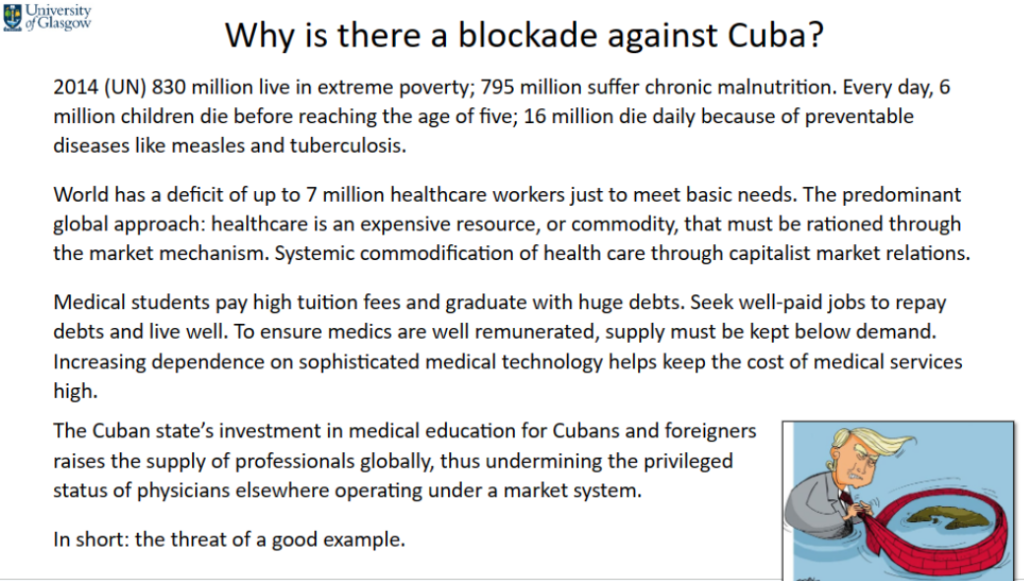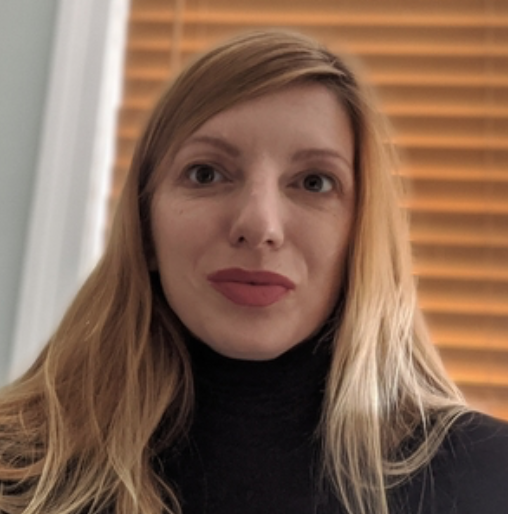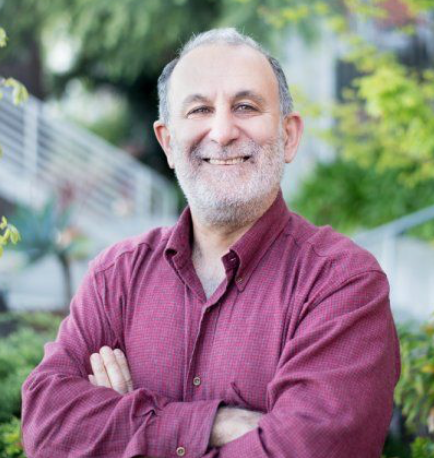National Single Payer is off to a busy start in 2024. Our January webinar: “McMedicare for All: What Privatization Means for the Single Payer Movement” presented by Ana Malinow, MD, explained the rise of profiteering in healthcare in the US, with an in-depth look at value based care and the acceptance of this model as the cost-saving standard despite all evidence to the contrary.
The presentation raised fundamental questions about the ownership of our healthcare system. How can we take healthcare back from entrepreneurs and wealth extractors? Is there a model for community ownership of healthcare? What about a National Health Service?
We moved on to explore an alternative model of healthcare with our February webinar: “Against All Odds: What the US Can Learn from the Cuban Health Care System,” featuring Secretary David Ramirez Alvarez, former Cuban attaché to the U.S. General Division, Ministry of Foreign Affairs and current Second Secretary in the Cuban Embassy. This webinar was co-sponsored by the Pittsburgh-Matanzas Sister Cities Partnership.
The “odds” refer to the US policy to isolate Cuba from trade and vital human necessities with a 60 year-old economic, financial and commercial blockade that has created critical shortages of food, fuel, medicines and medical equipment. And yet…Cuba has created and supported a unique model of public healthcare that features locally-based preventive care. This healthcare system is the result of a commitment to healthcare as a human right as enshrined in the Cuban constitution. Health outcomes have improved, notably infant and maternal mortality rates are lower than in the United States. At the center of the three-part health system is the community family medicine clinic, which is embedded in each community where physicians and nurses reside with the patients they serve. Local communities are linked to a second level, the hospital system. One hundred fifty municipal hospitals provide specialty care that is coordinated by the community family clinics. The third level of care is based in 12 specialized research institutes. All levels of care are free and available to all citizens. Furthermore, the network of community health clinics dispersed to all geographies creates an effective public health system that can respond to health crises like the COVID-19 pandemic.
Cuba has also planned for the disparities in resources and living conditions that have been identified by coordinated efforts of local governments and the family health clinics. Areas with the highest levels of health risks are allocated the highest level of resources to reduce risk and promote health. By contrast, in the US, the commodification of healthcare creates and maintains socio-economic disparities– healthcare is effectively rationed based on the ability of people to pay for their care. To make matters worse, government programs developed by CMS (ACO-REACH) allow for-profit corporations to participate in programs to ostensibly reduce disparities in health outcomes related to social determinants of health. When profiteering is the basis for correcting economic and social disparities only the profiteers win!
We think there is value in understanding the history of healthcare in a revolutionary country that recognizes the human right to health in its constitution. At the same time, we must acknowledge our complicity in the humanitarian crisis that is crushing Cuba. Cuba has been deeply impacted by 60 years of sanctions and the placement on the State Sponsors of Terrorism list by the Trump administration. Longtime friends of Cuba who attended our webinar have described the devastating effects of sanctions on healthcare, nutrition and quality of life in Cuba. Conditions have worsened significantly since the terrorist designation. We support efforts to pressure the Biden administration to lift the sanctions and remove Cuba from the terrorist list!
For those of you interested in learning more about the Cuban healthcare system, the group Cleveland US Hands Off Cuba Committee presented an excellent webinar “What Americans Can Learn (and gain) from Cuban Healthcare” on Feb 27.
Helen Yaffee, an economic and social history lecturer at the University of Glasgow, specializing on Cuba and Latin America, discussed how the values of the Cuban revolution impacted the type of healthcare they have in Cuba and the impacts of Cuban healthcare on the world.

ELAM, Cuba’s medical school that has trained thousands of international doctors:
The focus on models of healthcare continues with our March webinar, which will take a close look at the challenges facing rural hospitals brought on by corporate greed and the model for hospital financing proposed historically in Medicare for All legislation since HR 676, global budgets.
March Webinar
Rural Hospitals Under Fire:
National Single Payer and Global Budgets Can Save Them
Join National Single Payer Wednesday, March 13, 2024 at 5 pm PT/8 pm ET as we welcome two guest speakers: Journalist Maureen Tkacik and Health Justice Monitor Editor Jim Kahn who will present Rural Hospitals Under Fire: How National Single Payer and Global Budgets Can Save Them. REGISTER HERE


Maureen Tkacik is a Senior Fellow at the American Economic Liberties Project, investigations editor at the American Prospect, and a journalist who has written extensively on corporate greed for The American Prospect, The Wall Street Journal, Time, and the New Republic. James Kahn is professor in the Philip R. Lee Institute for Health Policy Studies and the Department of Epidemiology and Biostatistics at the University of California San Francisco. Corporate greed is a driver of most rural hospital closures, with corporate crime representing a healthy minority of those cases. Learn how global budgeting is a reform model that could “achieve universal coverage at an affordable cost and facilitate more equitable funding of hospital infrastructure.”
What would rural hospitals look like if we had a system that expressly prohibited private ownership of health care?
YOU MUST REGISTER FOR THIS EDUCATIONAL WEBINAR!
After registering, you will receive a confirmation email containing information about joining the webinar.
In Other News…
Union retirees continue to feel the impact of their fight to retain their Medicare benefits. We hope to bring more on this soon!